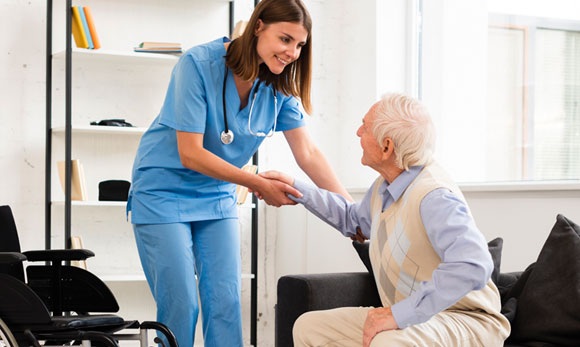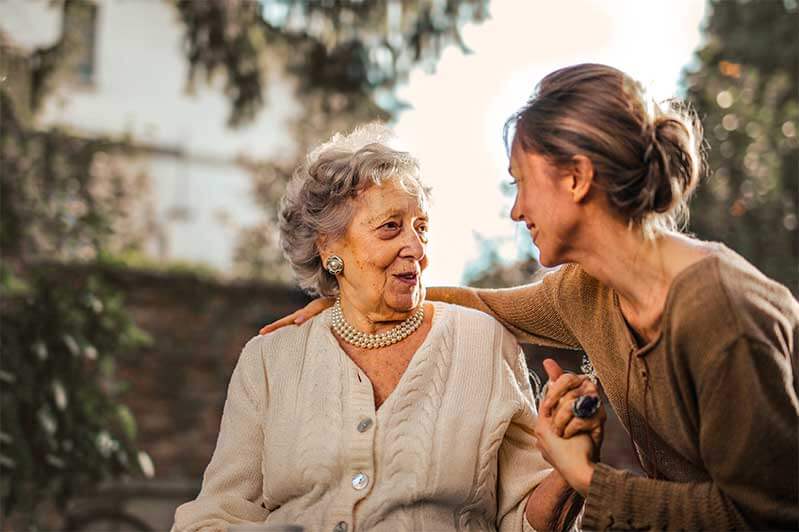Awareness in Alzheimer’s

Awareness in Alzheimer’s
It is hard to find someone that hasn’t heard of the disease Alzheimer’s and the medically deteriorating condition called Dementia. Most developed countries through-out the world are familiar with these ailments by their medical name. What we do find is that not everyone is familiar with what Alzheimer’s and Dementia is; What people living with it experience; What loved one’s experience coping with parents, grandparents, elderly siblings that have Alzheimer’s or Dementia, statistic’s, heredity, and attempts at prevention. I will scantily discuss these items here to better inform you on these issues.
So, what are they- (Alzheimer’s and Dementia)?
Alzheimer’s disease is a neurological disorder in which the death of brain cells causes memory loss and cognitive decline. A neurodegenerative type of dementia, the disease starts mild and gets progressively worse.
It is described in short almost twitter like criterion, however the destruction and severity of the disease is enormous on one’s life and the lives of their family.
Dementia is defined as
“a chronic or persistent disorder of the mental processes caused by brain disease or injury and marked by memory disorders, personality changes, and impaired reasoning”.
Alzheimer is the most common type of dementia. Dementia itself isn’t a specific disease. Rather it is a term used to describe declining function and activity in brain functionality that affects thinking, judgment, memory, behavior, language and other what are considered to be normal daily functions of an independent person.
People living with Alzheimer’s
Reports on people living with Alzheimer’s vary and change often due to the lack of true data collection but at a minimum there are at least 5.2 million people in the U.S. living with Alzheimer’s, with that number expected to rise to 14 million by 2050. The vast majority of people who have Alzheimer’s are over the age of 65, but there are roughly 200,000 people experiencing the disease under the age of 65, and about 15 million people who are active care givers for those suffering. According to the CDC, Alzheimer’s disease is the sixth leading cause of death in the United States, and the fifth leading cause of death in people age 65 and older and…
“Alzheimer’s disease-related deaths have increased over the past 16 years in every race, sex, and ethnicity category, and will most likely continue to increase as the population continues to age. More persons with Alzheimer’s disease are dying at home, and this means more caregivers are needed to care in the final stages of Alzheimer’s disease is very great.”
Families, caretakers, and professionals must remember that the people they are trying to help through Alzheimer’s are struggling with a disease that is deteriorating their brain. Many people struggle with this, some experience emotions that can be expected such as depression and withdrawal, anger and violence. Caretaker’s must constantly strive to be mindful of the struggle and practice patience, patience, patience.
Alzheimer’s Statistic’s
- Every 67 seconds someone in the US develops the disease.
- It is the only cause of death in the US top 10 that cannot be prevented, cured or slowed.
- Almost two thirds of Americans with Alzheimer’s disease are women.
- 1 in 3 seniors dies with Alzheimer’s or another dementia.
- Alzheimer’s and other dementias cost the nation $226 billion per year.
- Due to the physical and emotional toll of caregiving, Alzheimer’s and dementia caregivers had $9.7 billion in additional health care costs of their own in 2014.
- As the population of the United States ages, Alzheimer’s is becoming a more common cause of death.
Is Alzheimer’s Hereditary?
It appears that the chance of developing Alzheimer’s increase’s if it is in your family and more so if within the immediate family – parent, multiple family members, siblings. Whether it’s genetic or environmental factors isn’t definitely known.
Preventing Alzheimer’s
It is not absolutely certain if Alzheimer’s can be negated through human activity and choices but there is the possibility. As with most things in life, healthy life style choices may help prevent or slow Alzheimer’s development. Eating a healthy diet, exercise, proper sleep, healthy social connections, and moderate intake of alcohol.
Possible risk factors are: Heart disease, Stroke, High blood pressure, Diabetes and Obesity.
When dealing with loved ones with Alzheimer’s remember to:
- Get educated about it
- Develop routines
- Don’t argue
- Stay Active and Healthy
- Ensure medications are known
- Involve help and assistance
- Give a sense of independence
- Take moments for your own health and well being
- Remember the disease is altering their emotions and mood
- Practice, patience, patience, patience
Dealing with a deteriorating condition can be extremely taxing on the family care takers mental wellbeing and their own health. Take a moment and think about getting outside help from professionals. Home care agencies may be a great supplement in caring for those you love.
Alzheimer’s is not an end all for someone once they are diagnosed. It will be a significant and noticeable change in the family’s life. There is no way to touch on everything in a article, but remember to take it one day at a time, recruit help from family members, maintain a healthy over all lifestyle, continue to care for the person, show respect, admiration, and love. Home care agencies, such as Genesis Home Care, provide home assistance, companion care, assisted living and other services. These services are noticeably cheaper than nursing homes and come with the security of knowing your family member stays in their home. Below you will find other resources that can further assist you with any questions, concerns and searches.
Disclaimer: This article is intended as a friendly reminder with recommendations. It is not medical advice, direction or prescription of any sort. Please refer to professional services for any health-related questions, concerns and relief.
http://www.aplaceformom.com/alzheimers-care/georgia/atlanta
1-800-272-8700
Alzheimer’s Foundation of America: 1-866-AFA-8484 (1-866-232-8484)
National Institute on Aging: 1-800-222-2225
National Institute of Mental Health: 1- 866-615-6464
Financial Assistance
Partnership for Prescription Assistance
NeedyMeds: 1-800-503-6897
Social Security Administration
Coping, Advocacy, and Support
Alzheimer’s Association 24/7 help line: 1-800-272-3900
Well Spouse Association: 1-800-838-0879
Alzheimers.net: 1-877-684-4310
National Alliance for Caregiving: 1-301-718-8444
BrightFocus Foundation: 1-800-437-2423
References:
https://www.cdc.gov/features/alzheimers-disease-deaths/index.html
http://www.medicalnewstoday.com/articles/159442.php
http://www.alzheimers.net/2-11-15-loving-someone-with-dementia/

Contact us
Reach Us
Our dedication to caring for our clients is more than just a job. “It’s a way of life.” Let us help you maintain your independence today!
4751 Best Road Ste 400B College Park GA, 30337
Phone: (770) 808 6070
Fax: (770) 679 8593






